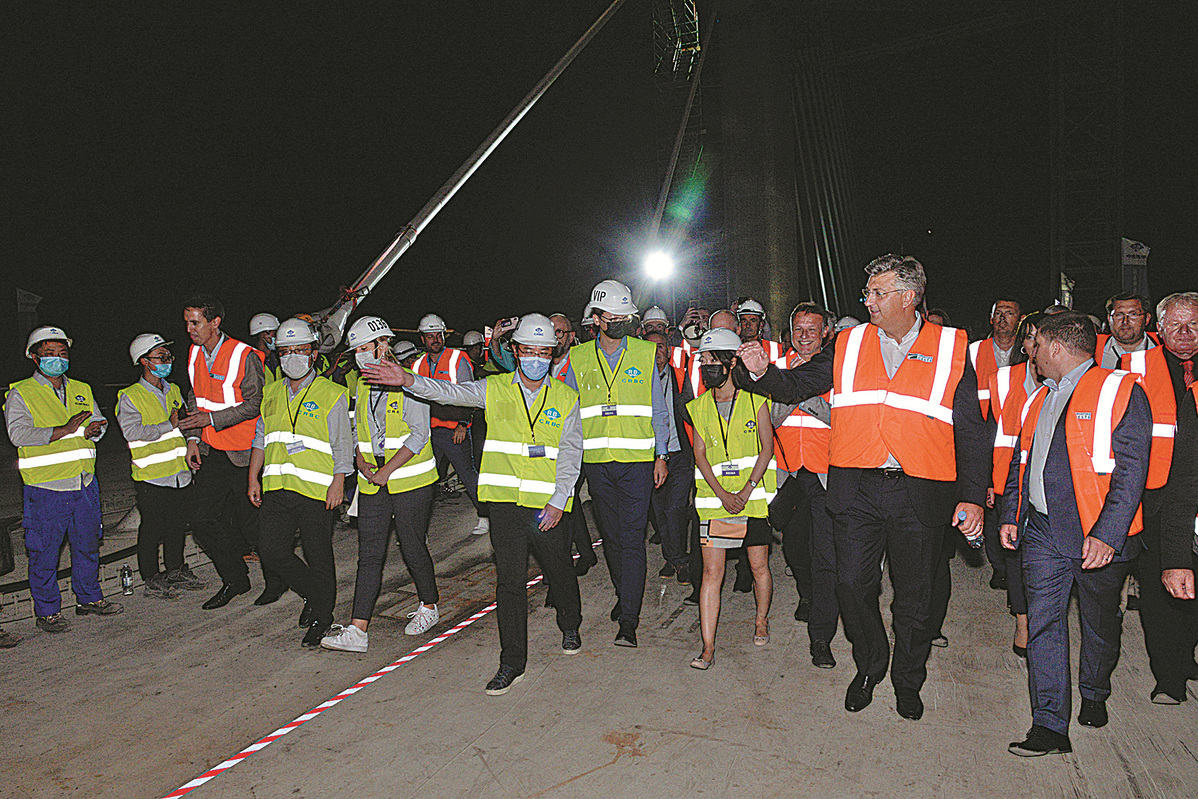Crossing carries hopes of Croatia


High standards
Zeng Linghua, the deputy project manager, has been working on the bridge since day one. He said he feels proud that the project has met the high standards required by China, Croatia and the European Union in terms of quality, safety and environmental protection, and that the structure has won praise from many institutions.
"The Peljesac Bridge carries Croatian people's long-cherished hope to connect their territories in the north and south," said Zeng, calling the project the largest cooperative project between China and Croatia.
"It's not just of great strategic significance to Croatia's transport, economy and people's livelihoods but significant in encouraging Chinese construction companies going global and in promoting the Belt and Road Initiative," he said.
The BRI is a Chinese government initiative launched in 2013 to build infrastructural connectivity mainly in Asia, the Middle East, Africa and Europe to boost economic growth.
Zeng recalled the huge challenges during the outbreak of the pandemic in 2020 when there were 800 Chinese workers on the construction site at the peak time. Ensuring everyone's safety against the then little-known coronavirus was a top priority. And due to the well-planned safety and preventive measures, no one was ever infected.
Zeng said that as the first Chinese company undertaking a project funded by the European Union, CRBC successfully adapted to the European market.
"In a word, it is a high standard," he said, referring to a wide range of achievements from the bridge's steel structure obtaining Europe's highest EXC4 Class classification to the strict protection of marine life due to the project location in an ecological conservation area.
Xiong Cheng 1, the world's largest pile-driving barge, was deployed for driving the world's longest steel piles, at 130.6 meters long, to lay the foundations for the bridge.
Zeng also attributed the success to the relentless efforts by the team to familiarize and adapt to the EU laws and regulations and develop its own team over the past years, in sharp contrast to the early days when China, Croatia and the EU's different management styles and construction criteria were sometimes at odds with each other on the construction site.
Natali Kolega, who began work on the project as a field engineer after she graduated from the University of Zagreb in 2018, described the job as a great start to her career.
"It means so much for me. It has helped me grow up and transformed me from a student to an engineer. I will forever remember the experience here," she said.


















